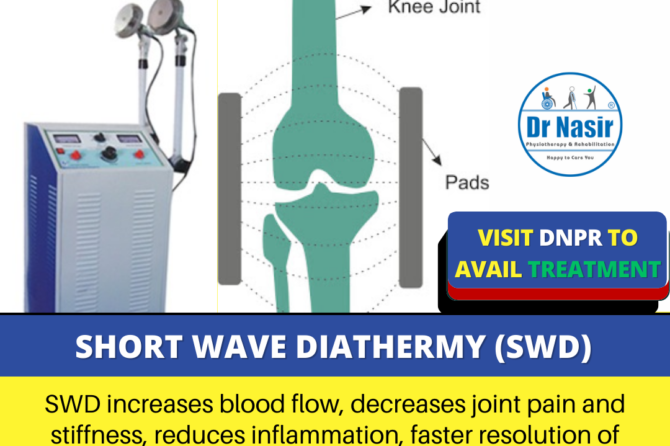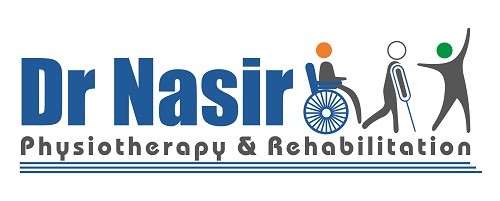
Shortwave Diathermy (SWD)
Joints or muscular pain is a common condition affecting millions of people worldwide. It can be caused by various factors, including
- Overuse
- Injury
- Age-Related Problems
- Underlying medical conditions.
One effective treatment option for Joints or muscular pain, commonly known as Shortwave Diathermy (SWD)
SWD stands for shortwave diathermy, a type of heat therapy that uses high-frequency electromagnetic waves to generate heat within the tissues. The heat produced by Shortwave Diathermy (SWD) helps to increase blood flow to the affected area, reduce pain, and promote healing.
How do we use Shortwave Diathermy (SWD) treatment?
Assessment and Diagnosis:- Before starting SWD physiotherapy, a physiotherapist will assess and diagnose the cause of shoulder pain. The assessment process may include physical examination, medical history, and diagnostic tests such as X-rays and MRI scans.
Treatment Plan:- Based on the assessment, the physiotherapist will develop a personalized treatment plan that includes SWD physiotherapy and other techniques such as stretching, strengthening exercises, and joint mobilization, etc.
SWD Physiotherapy:- During an SWD physiotherapy session, the patient lies down comfortably while the physiotherapist applies a device that emits high-frequency electromagnetic waves to the affected area. The device may be placed directly on the skin or over a towel or pad. The duration and frequency of the treatment depend on the patient’s condition and response to therapy.
Benefits of SWD in Physiotherapy
SWD physiotherapy offers several benefits for Joints or muscular pain including:
- Pain relief: The heat generated by SWD physiotherapy helps to reduce pain and discomfort in the joint or muscles.
- Improved range of motion: By increasing blood flow and promoting healing, SWD physiotherapy can improve the range of motion and flexibility.
- Faster healing: SWD physiotherapy can accelerate the healing process by increasing blood flow and promoting the delivery of nutrients and oxygen to the affected area.
- Non-invasive: SWD physiotherapy is a non-invasive treatment option that does not require surgery or medication.
Indications of Swd
- Sprain and Strain
- Frozen shoulder
- Degenerative joint disease (OA)
- Joint stiffness.
- Tenosynovitis
- Arthritis
- Tendinitis
- Bursitis
- Myofascial pain.
- Lumbar pain.
- Tennis elbow
Contraindications of Swd
- Pregnancy
- Patients who are taking blood-thinning medications
- Cancer
- Severe/excessive edema
- Metallic implant
- Cardiac pacemaker,
- Over wet dressing,
- Acute inflammation,
- Infected open wound
- Impaired thermal sensation
- Recent radiotherapy
- Severe cardiac abnormality
- Blood pressure abnormality
- Anesthetic area
- Tuberculosis,
- Reproductive organ.
Conclusion
SWD physiotherapy is an effective and non-invasive treatment option for Joints or muscular pain. It can help to reduce pain, improve range of motion, and promote healing. If you are experiencing Joint and muscular pain, it is important to seek professional advice from a qualified physiotherapist to determine the best treatment options for your condition.
If you are searching for SWD Therapy in Delhi India then your search is over here. At DNPR we have expert Physiotherapists For SWD Therapy in Delhi India.
We offer SWD treatment under government panels like CGHS, DGHS, etc and Non-Government Panels Cash and Cashless.
Call/WhatsApp +91-9891878108, +91-989187611
Leave a reply

Leave a reply